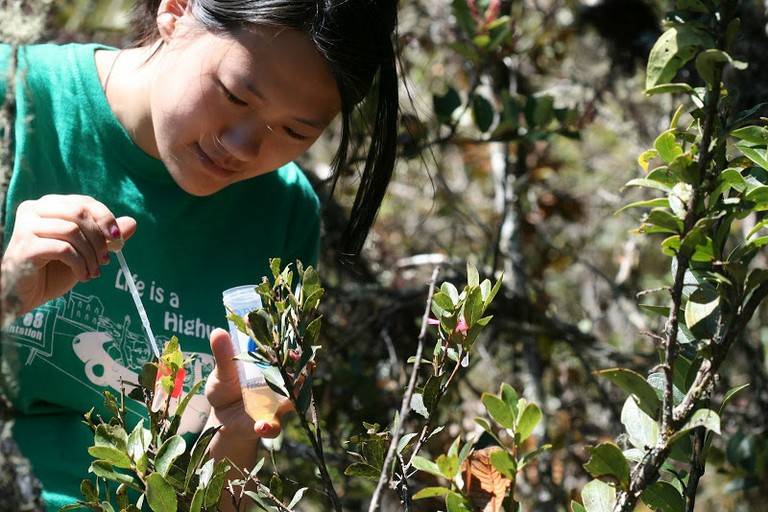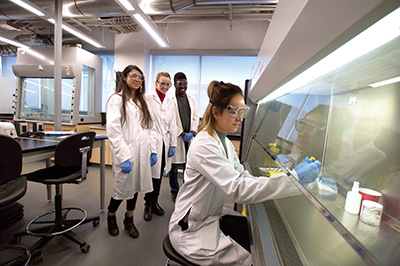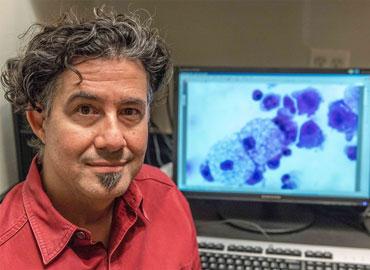
Life sciences students will learn to apply methods of scientific inquiry to study living matter, health, medicine and illness. The study of health sciences and life sciences helps students to understand and analyze the behaviour of the human body and those of other organisms. It prepares students for the ethical, social and political questions arising from our increasing ability to protect the delicate and complex ecological balance that sustains the world.
Applying to Life Sciences
OUAC Admission Code: TLG (Life Sciences)
Supplementary Application Form Required: No
Admission Category Prerequisites: English and Calculus
Approximate Admission Range: Mid to high 80s
Admission Requirements by Curriculum:
- Ontario High School and Other Canadian Provinces
- US High School Admission Requirements
- International Baccalaureate (IB) Admission Requirements
- British Patterned Admission Requirements
- Caribbean Advanced Proficiency Examination (CAPE) Admission Requirements
- Other International School Admission Requirements
It is important to note that in addition to the courses required for admission into the Life Sciences admission category listed above (English and mathematics/calculus), some programs of study may require you to take additional specific high school subjects in order to take specific courses in first year, or for entry into that program in second year.
For example, if you are interested in psychology, you will not only need English and mathematics/calculus (which are required for admission into Life Sciences), but you will also need grade 12 biology or equivalent to be able to enrol in the psychology program of study at the end of your first year.
Since you are admitted to the general Life Sciences admission category, during your first year you will not be enrolled in a specific program. This means that during your first year, you are able to explore a number of different areas of study. You apply to a program (e.g. major in psychology) at the end of your first year, and can combine programs outside of your own admission category, excluding programs in Rotman Commerce.
To prepare for admission into your program of study at the end of first year:
Step 1: Search for your desired program of study (e.g. psychology) in the table in the "Life Sciences (H.B.Sc.)" section below
Step 2: Find the high school subject prerequisites for your desired program of study listed under Subject(s) Required in Addition to English
Step 3: These prerequisites subjects allow you to enrol in introductory first year courses needed for your program of study selection at the end of first year. You can find these courses listed under Program Area in the Academic Calendar
Program List
From how the human body works, to the evolution of our species over time, to the incredible diversity of life on our planet, there are many facets of the living world you can study as a life sciences student.
Legend:
Bio: Biology; C: Calculus; Ch: Chemistry; Ph: Physics
Rec.: Recommended but not required
| Program | Subject(s) Required in Addition to English |
|---|---|
| Animal Physiology | C, Bio, Ch (Rec. Ph) |
| Anthropology: Evolutionary | C, Bio, Ch (Rec. Ph) |
| Biochemistry | C, Bio, Ch (Rec. Ph) |
| Biodiversity and Conservation Biology | C, Bio |
| Bioinformatics and Computational Biology | C, Bio, Ch |
| Biological Chemistry | C, Bio, Ch (Rec. Ph) |
| Biological Physics | C, Bio, Ch, Ph |
| Biology | C, Bio, Ch (Ch not Req'd for minor) |
| Biomedical Toxicology | C, Bio, Ch (Rec. Ph) |
| Cell and Molecular Biology | C, Bio, Ch, Ph (Ph rec not Req'd for major) |
| Ecology and Evolutionary Biology | C, Bio, Ch |
| Environment and Behaviour | C (Rec. Bio) |
| Environment and Energy | C, Ch (Rec. Ph) |
| Environment and Health | C, Bio, Ch (Rec. Ph) |
| Environment and Toxicology | C, Bio, Ch (Rec. Ph) |
| Environmental Biology | C, Bio, Ch (Ch not Req'd for minor) |
| Environmental Chemistry | C, Bio, Ch (Rec. Ph) |
| Environmental Geosciences | C, Bio, Ch (Rec. Ph) |
| Environmental Science | C, Bio, Ch (Rec. Ph) |
| Forest Conservation Science | C, Bio (Rec. Ch) |
| Fundamental Genetics and its Applications | C, Bio, Ch (Rec. Ph) |
| Genome Biology | C, Bio, Ch |
| Global Health | C, Bio, Ch (Rec. Ph) |
| Health and Disease | C, Bio, Ch (Rec. Ph) |
| Human Biology | C, Bio, Ch (Rec. Ph) |
| Immunology | C, Bio, Ch (Rec. Ph) |
| Molecular Genetics and Microbiology | C, Bio, Ch (Rec. Ph) |
| Neuroscience | C, Bio, Ch (Rec. Ph) |
| Nutritional Sciences | C, Bio, Ch |
| Pathobiology | C, Bio, Ch (Rec. Ph) |
| Pharmaceutical Chemistry | C, Bio, Ch, Ph |
| Pharmacology | C, Bio, Ch (Rec. Ph) |
| Pharmacology and Biomedical Toxicology | C, Bio, Ch (Rec. Ph) |
| Physiology | C, Bio, Ch (Rec. Ph) |
| Psychology | C, Bio (Rec. Ch, Ph) |
| Psychology Research | C, Bio (Rec. Ch or Ph) |
| Quantitative Biology | C, Bio |
Why Study Life Sciences at Arts & Science?

Research Opportunities
As a Life Sciences student, gain hands-on experience in our state-of-the-art labs and, as early as second year, you can assist your professors with medical and other research. Imagine working alongside your professor to create new technology to cure genetic diseases or travelling to Peru to study biodiversity – just two examples of the amazing research opportunities Life Sciences students have participated in.

Gain Practical Experience
Eligible Life Sciences students can apply for the Arts & Science Internship Program after first year and gain 12-20 months of relevant, paid work experience and specialized professional development training. Internships can take place in a variety of settings, including hospitals, research institutes, pharmaceutical companies, health marketing agencies and more.
Life Sciences Careers
#1 in Canada for graduate employability — recruiters from top companies have consistently ranked U of T as #1 in Canada and among the best in the world at preparing its students for the workplace. With a science degree from a world-renowned university, you will have a competitive advantage when applying for jobs in fields such as:
- Conservation
- Education
- Government
- Healthcare services
- Information technology
- Medicine
- Pharmaceuticals
- Public health
- Research
- Science writing
Plus, you’ll be well-prepared to pursue a professional degree in areas such as medicine, dentistry, veterinary medicine, forensic science and more.
Use Career Navigator to explore more careers in the life sciences and check out some Arts & Science alumni success stories below.
When I entered my undergrad at U of T, I had multiple leadership opportunities... these positions allowed me to hone my communication, teamwork and leadership skills and gave me the confidence to oversee increasingly complex projects. — Ishita Aggarwal, HBSc 2015





